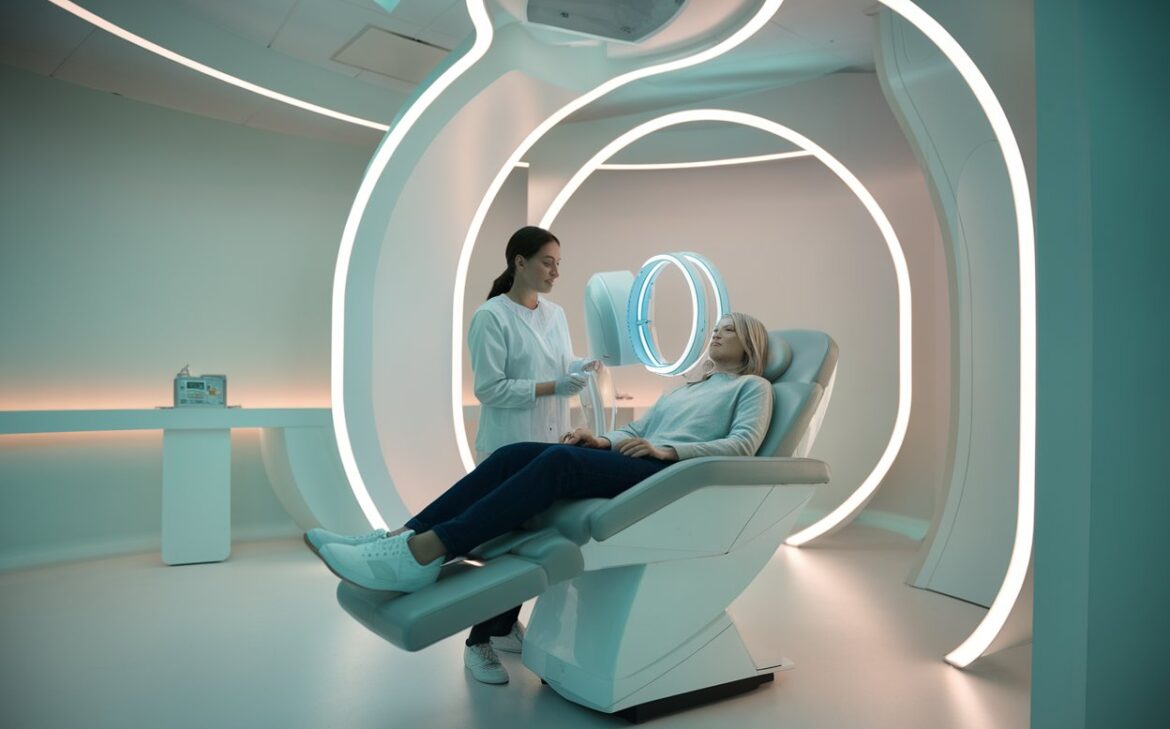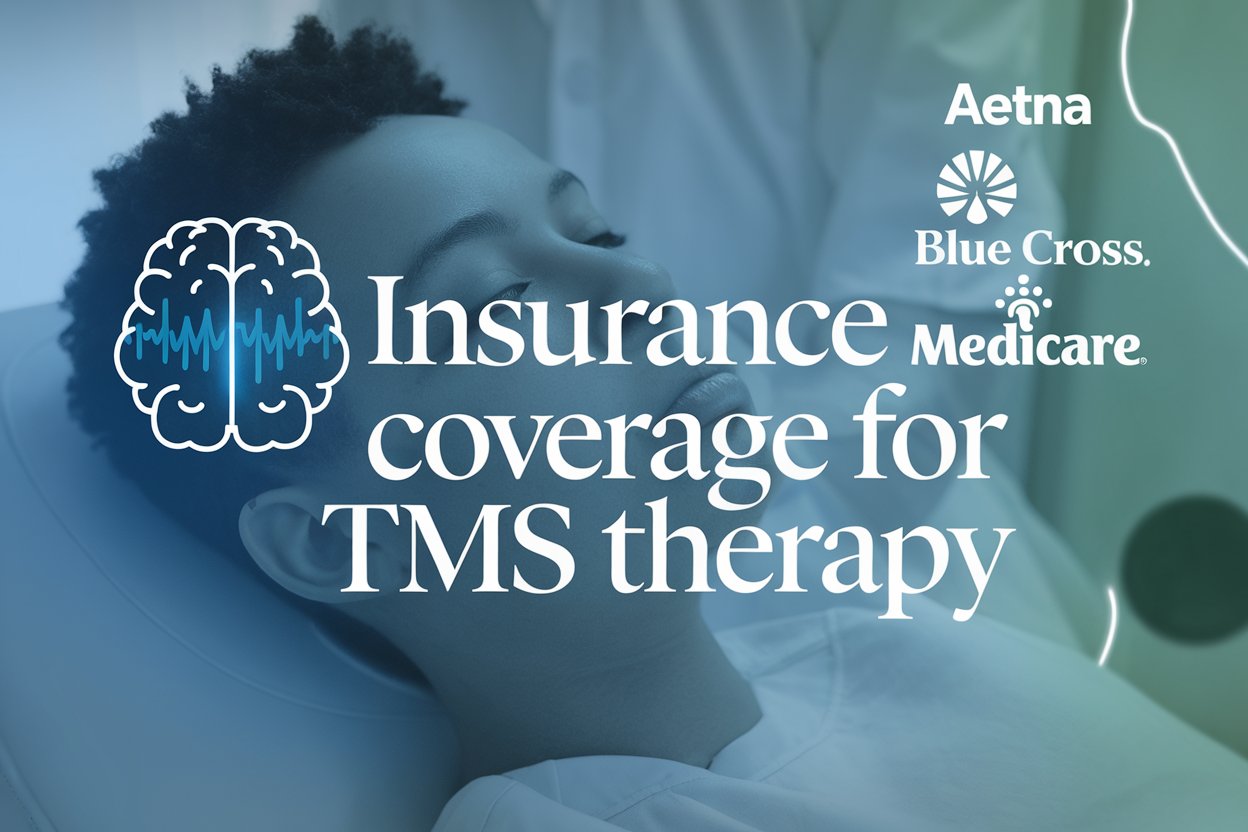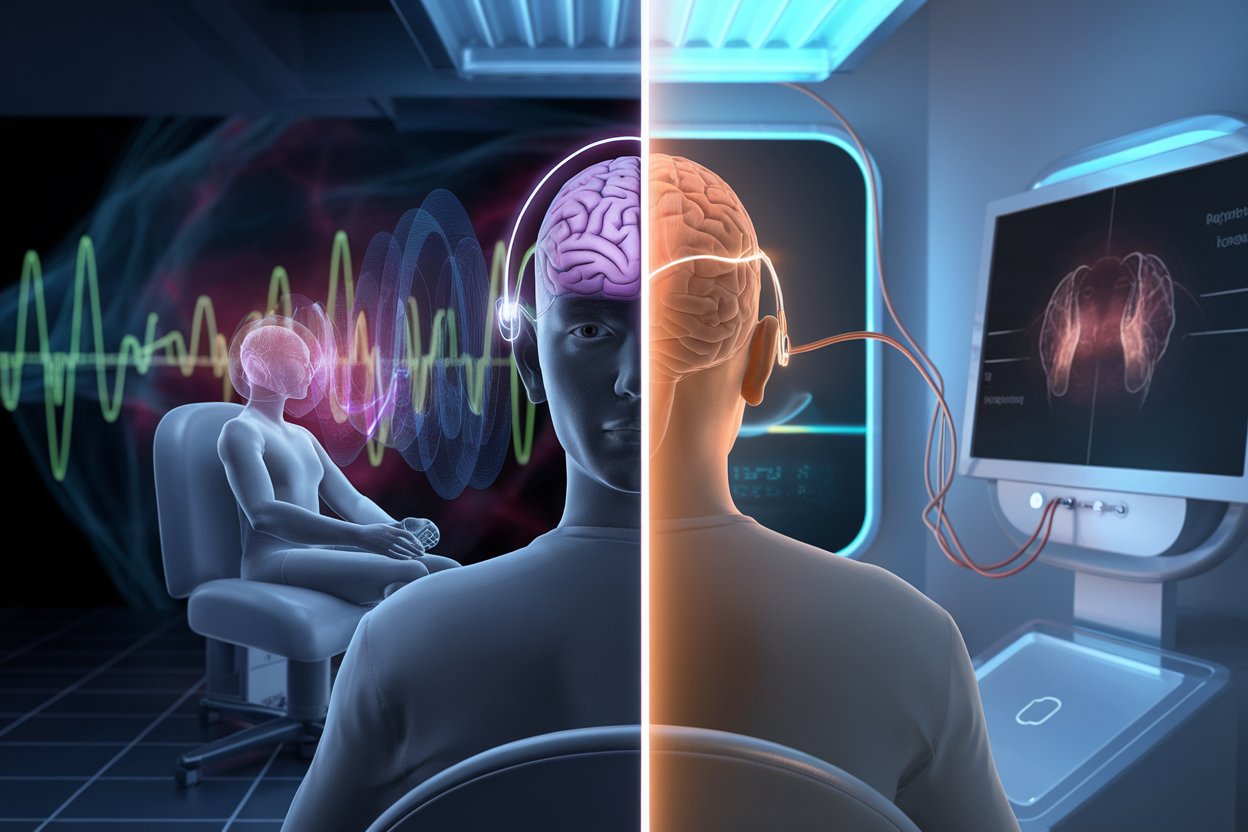Transcranial Magnetic Stimulation (TMS) therapy has gained popularity as an effective treatment for people who struggle with mental health conditions. But what is TMS therapy used for? In this article, we’ll explore the FDA-approved uses, off-label applications, and ongoing research about TMS therapy—so you can understand if it might be the right choice for you.
Understanding TMS Therapy
TMS therapy is a noninvasive procedure that uses magnetic pulses to stimulate nerve cells in the brain. It targets areas of the brain that may be underactive in individuals with certain mental health conditions. TMS therapy is mainly used for those who have not found relief from traditional treatments, such as medication or talk therapy.
Typically, TMS is done as an outpatient procedure. During each session, a magnetic coil is placed on the patient’s scalp, delivering short bursts of magnetic energy to the brain. The therapy is usually done for several weeks.
FDA-Approved Uses of TMS Therapy
What is TMS therapy used for under FDA approval? TMS has received approval for treating a few specific mental health conditions, primarily those that have not responded well to other treatments.
1. Major Depressive Disorder (MDD)
The main FDA-approved use for TMS therapy is for treating major depressive disorder (MDD), especially treatment-resistant depression. Many people with depression do not respond to antidepressants, and TMS offers a non-drug alternative that can help stimulate the brain areas involved in mood regulation.
2. Obsessive-Compulsive Disorder (OCD)
TMS therapy is also approved for treatment-resistant obsessive-compulsive disorder (OCD). For people who find that traditional therapy and medications do not alleviate their symptoms, TMS provides a different approach to managing this condition.
3. Migraine Prevention
Another FDA-approved application of TMS is for the prevention of migraines. The magnetic pulses help to stimulate brain activity and reduce the severity of migraines. This is particularly helpful for people who experience frequent migraines and haven’t found relief with medication.
Off-Label Uses of TMS Therapy
While TMS is FDA-approved for the above conditions, it has also been explored for several other mental health and neurological issues. These off-label uses have shown promise in some studies, although they are not officially approved.
1. Anxiety Disorders
TMS therapy has been explored as a treatment for anxiety disorders, such as generalized anxiety disorder (GAD) and social anxiety disorder. The idea is that TMS can help balance brain activity, reducing the symptoms of anxiety. Although it is not officially approved for this use, ongoing research shows potential benefits.
2. Post-Traumatic Stress Disorder (PTSD)
PTSD is another condition for which TMS therapy has shown promise. By stimulating specific parts of the brain associated with emotional responses, TMS might help regulate these responses in individuals with PTSD. It is not FDA-approved for PTSD, but some patients have reported reduced symptoms after treatment.
3. Chronic Pain Management
Chronic pain conditions, such as fibromyalgia and neuropathic pain, have also been targeted using TMS therapy. The treatment aims to modulate pain pathways in the brain. Though still in the experimental stage, TMS could offer a non-drug option for individuals dealing with chronic pain.
4. Substance Use Disorders
TMS is being explored for its role in treating substance use disorders, including alcohol and nicotine dependence. By stimulating areas of the brain involved in cravings, TMS might help reduce the urge to use these substances. While more research is needed, some clinics offer TMS as part of addiction treatment programs.
5. Schizophrenia
For individuals with schizophrenia, TMS is used primarily to address auditory hallucinations. By targeting specific areas of the brain responsible for these symptoms, TMS has helped some patients find relief. However, it remains an off-label use and requires more extensive research.
6. Parkinson’s Disease and Stroke Rehabilitation
TMS therapy is also being explored as a potential treatment for Parkinson’s disease and stroke rehabilitation. By stimulating motor areas of the brain, TMS might help improve motor function in patients suffering from these conditions.
7. Alzheimer’s Disease and Dementia
Researchers are investigating whether TMS could help improve cognitive symptoms in people with Alzheimer’s disease or dementia. Early studies have shown some promise, but the use of TMS for these conditions is still experimental.
Exploratory Research Areas for TMS Therapy
TMS is still being studied for many conditions that affect both mental and physical health. Some of these include:
- Bipolar Depression: Research is ongoing to determine if TMS could help manage symptoms of bipolar disorder, especially during depressive episodes.
- Autism Spectrum Disorder: There is interest in exploring whether TMS can help improve social and behavioral symptoms in individuals with autism.
- Eating Disorders: Conditions like bulimia and binge eating disorder have also been studied to see if TMS might help regulate the brain areas associated with these behaviors.
- Tinnitus: TMS has been explored as a potential way to alleviate symptoms of chronic ringing in the ears.
- Chronic Fatigue Syndrome (CFS): TMS may help improve mood and energy levels in individuals with chronic fatigue syndrome.
How Does TMS Therapy Work?
TMS therapy works by using magnetic pulses to stimulate certain areas of the brain. The exact mechanism isn’t fully understood, but researchers believe it helps trigger the release of important neurotransmitters like serotonin and dopamine. These chemicals play key roles in mood regulation, pain perception, and other important brain functions.
The procedure is simple. You sit comfortably while a technician places a magnetic coil on your scalp. This coil delivers magnetic pulses to the brain, which can help “wake up” underactive areas. Each session lasts about 30 to 60 minutes, and you can return to your regular activities afterward.
Benefits of TMS Therapy
TMS therapy offers several benefits for people struggling with mental health conditions:
- Noninvasive: There is no surgery or anesthesia involved.
- No Systemic Side Effects: Unlike medications, TMS doesn’t cause side effects like weight gain or sexual dysfunction.
- Quick Recovery: You can drive yourself home after treatment and resume daily activities.
Who Can Benefit From TMS Therapy?
TMS therapy is often recommended for individuals with treatment-resistant depression—those who haven’t found relief from medication or therapy. It is also used for people with OCD, migraines, and other conditions where traditional treatments have not been effective.
However, TMS is not for everyone. People with metal implants near the head, a history of seizures, or certain medical devices should avoid TMS therapy. It’s important to consult your healthcare provider to determine if TMS is right for you.
Summary: What Is TMS Therapy Used For?
So, what is TMS therapy used for? TMS is FDA-approved for conditions like major depressive disorder, OCD, and migraine prevention. Beyond these, it has shown promise in treating anxiety, PTSD, chronic pain, substance use disorders, and even neurological conditions like Parkinson’s disease. Exploratory research is ongoing for many other conditions, including autism and Alzheimer’s disease.
If you’re struggling with a condition that hasn’t improved with traditional treatments, TMS might be worth considering. Always speak with your healthcare provider to see if TMS is the right fit for your needs and ensure you understand both the benefits and risks.
Take the First Step Toward Better Mental Health
If traditional treatments haven’t worked, TMS therapy might be the solution you need. Contact American TMS Clinics today for a consultation and explore how TMS can help you regain control of your life.





